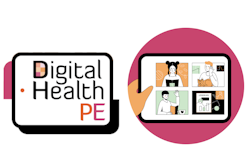
Webinar
Developing critical digital health pedagogies for teachers of PE
Event information
Date & location
From 4:00pm CET
Universidad Complutense de Madrid
View on Google MapsContact
Questions? Contact Project Coordinator Maria José Camacho-Miñano
Contact Maria José via emailParticipation
Register to attend the webinar, which will take place via Zoom
This webinar will explore the why and how behind developing critical health pedagogies for teaching of Physical Education, drawing on the interdisciplinary knowledge developed through the Una Europa seed-funded project, “Developing Critical Digital Health Pedagogies for Teachers of Physical Education: An Interdisciplinary, International and Collaborative European Project”.
Why & how can we develop digital health pedagogies for teachers?
In a fast-developing digital world, the nature of learning about health is increasingly complex, sometimes exposing young people to benefits but also to emerging risks. This happens even before adults, such as teachers, know how to help young people negotiate these digital learnings related to health which usually circulates within our broader physical cultures. All this possess challenges to our understanding of how to best equip teachers, and specifically Physical Education teachers, with critical and transformative teaching approaches to challenge the ways in which young people engage with digital health technologies.
How can PE teachers help young people form and negotiate digital health learnings? Why a critical approach is essential and which concepts and theories could underpin this knowledge? Which pedagogical approaches and principles could better improve teacher’s critical understanding of digital health? How do contextual aspects affect this learning? What are the future directions that could move forward our current insight?
In this webinar we will debate about all these questions, drawing on the interdisciplinary knowledge we have developed through our UNA Europa seed funding project entitled “Developing Critical Digital Health Pedagogies for Teachers of Physical Education: An Interdisciplinary, International and Collaborative European Project”.
PhD students, researchers, student teachers and teachers interested in Physical Education and health more broadly are welcome to learn and discuss together about this exciting emerging field.
Speakers
The Una Europa seed-funded project “Developing Critical Digital Health Pedagogies for Teachers of Physical Education: An Interdisciplinary, International and Collaborative European Project” includes academics and researchers from across the Alliance. This is reflected in the lineup of speakers for this webinar, which also includes invited guests from other European University collaborators:
- Chair: Maria José Camacho-Miñano (University Complutense of Madrid)
- Kristiina Kumpulainen (University of Helsinki)
- Shirley Gray and Sarah MacIsaac (University of Edinburgh)
- Antonio Maturo (University of Bolognia)
- Emma Rich (University of Bath)
About the Project: DigitalHealthPE
"Developing Critical Digital Health Pedagogies for Teachers of Physical Education: An Interdisciplinary, International and Collaborative European Project”, also known as DigitalHealthPE, focuses on how to best ‘equip’ teachers of Physical Education to support young people to navigate the complex landscape of digital health in a critical way. The work of the project explores the impact of digital health technologies, such as health apps or fitness content on social media, which can encourage young people to adopt healthy lifestyles, but not always in a positive way.
One of the most novel aspects of our project is that, instead of focusing on developing “critical thinking” as the transfer of knowledge (as a cognitive capacity), we focus on the moving body and its sensory and affective responses. We see this as a relevant way to generate new meanings that help young people to navigate the complexity of health-related learnings through digital technologies.